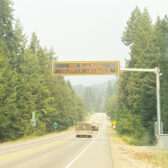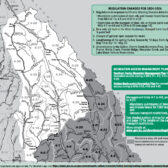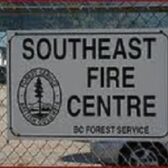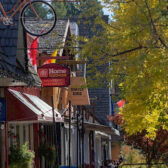City could bring scoring matrix into mix over recreational cannabis licences
The city is considering setting up a scoring matrix to help determine who receives a recreational cannabis business licence in the city and who does not.
Although recreational cannabis applications will get vetted through the province first when cannabis achieves legalization later this year, the municipality holds the real say on how many and who gets to operate.
But with an expectation that there will be more applications than the five openings the city is expected to offer, the city is attempting to put a process in place to deal with them.
All eligible recreational cannabis applications for Nelson will be brought to the city and city council for consideration. If the application fails to meet any of the bylaws pertaining to cannabis, it will not come to council, said city planner Alex Thumm when the Zoning Amendment Bylaw – recreational Cannabis came up before council recently.
Province does background check on the application first, then city staff “scores” the application and ensures it is compliant with bylaws — as well as having a public input component to it — and then after council has given approval it heads back to the province for ratification.
“Presumably we are going to have more applications than spaces,” Thumm said, “then we are going to be looking at the scores.”
The matrix criteria fall under four headings: location and community compatibility and impact; security plan; qualifications and experience of the applicant; building façade and interior improvements.
The process and the matrix are a first attempt, said Thumm, not a first draft, at processing the number of applications the city anticipates receiving for a limited number of retail openings.
“This is certainly something we can review in a half a year or a year’s time as well as we gain experience with it,” he said.
Coun. Val Warmington wondered who the licences would go to and how the city could safeguard against chain stores versus local operations.
“I don’t see anything here that would relate any kind of scoring to it,” she said.
Many people have expressed support and desire to favour local businesses, Thumm replied.
“But given the free trade agreement situation in Western Canada … we have to treat every business and individual, from Manitoba westwards, equally,” he said.
“At the end of the day council does have discretion as to who goes forward to the province for recommendation. But as part of the matrix, we are simply not able to do that.”
Coun. Michael Dailly had trouble with the scope of scoring by city staff, noting he was comfortable with two of the four categories, but not with making judgement on qualifications and experience of the applicant, and building façade and interior improvements.
“I just think you are going into a very grey area when you are talking about previous successful business experience and background,” he said about one of the scoring matrixes. “But how do you assign a number to how successful someone has been, or what kind of businesses they have run? It just seems too broad.”
“We agree that there is, ultimately, some subjectivity in it,” said city manager Kevin Cormack.
Dailly made an amendment to the bylaw, proposing that an application meet the first two matrix requirements to do the business and then go into a lottery for selection.
Warmington liked the idea of not delving into business experience for scoring, but was against the lottery.
“I like the idea of having some control over who gets a licence,” she said.
Cormack warned against the lottery system.
“In a true lottery system you have zero control over that,” he said. “Even though, ultimately, council will be able to pass a resolution of which ones they favour, I think your decisions could be in jeopardy if you don’t have good, strong rationales. Someone else could challenge your process.”
The amendment failed.
However, motion carried on the first three readings of the Zoning Amendment Bylaw, with Dailly opposed.
A public hearing on the zoning bylaw change will now be scheduled.
Cannabis concerns
Data collected at a city open house on May 1 noted that the highest number of responses supported a 150-metre separation distance between cannabis stores and schools, youth facilities, parks and playgrounds with no separation distances between cannabis stores.
Both businesses and the general public “were very clear” that there should be a maximum number of retailers allowed (1,331 responses or 75 per cent), noted city staff in the report to council, the results suggesting a maximum of five cannabis retail stores by area.
A model for the cannabis map was drawn up through the data from the survey, with two stores allowed downtown, one along Nelson Avenue and Highway 3A, another store in the industrial area and Lakeside Drive, with the fifth allowed in Railtown.
Nearly half (46 per cent) of the respondents noted there should not be any cannabis-related stores in the Chahko-Mika Mall. The mall also happens to fall within the 150 m. separation distance from youth facilities and parks.
However, the majority of the survey respondents chose between 500 m., to 300 m. separation distances from schools, parks, and youth facilities, meaning Nelson’s small commercial area would result in zero to three cannabis retail stores.
The setback distances will not be noted in the proposed bylaw. An applicant for a recreational cannabis business will need to refer to a schedule map to see if a location is in the permitted area.
There were some instances where the separation distance could be reduced based on site-specific considerations.
Size of the stores will also be regulated in the proposed bylaw, with limits placed on the maximum gross floor area and the maximum building frontage.
The size restrictions — based on work done in other jurisdictions regarding proposed recreational cannabis bylaws — limited the length of an exterior store front on the floor closest to grade to a maximum of 16 m. A cannabis retail store can only have a maximum gross floor area of 500 square metres.



























